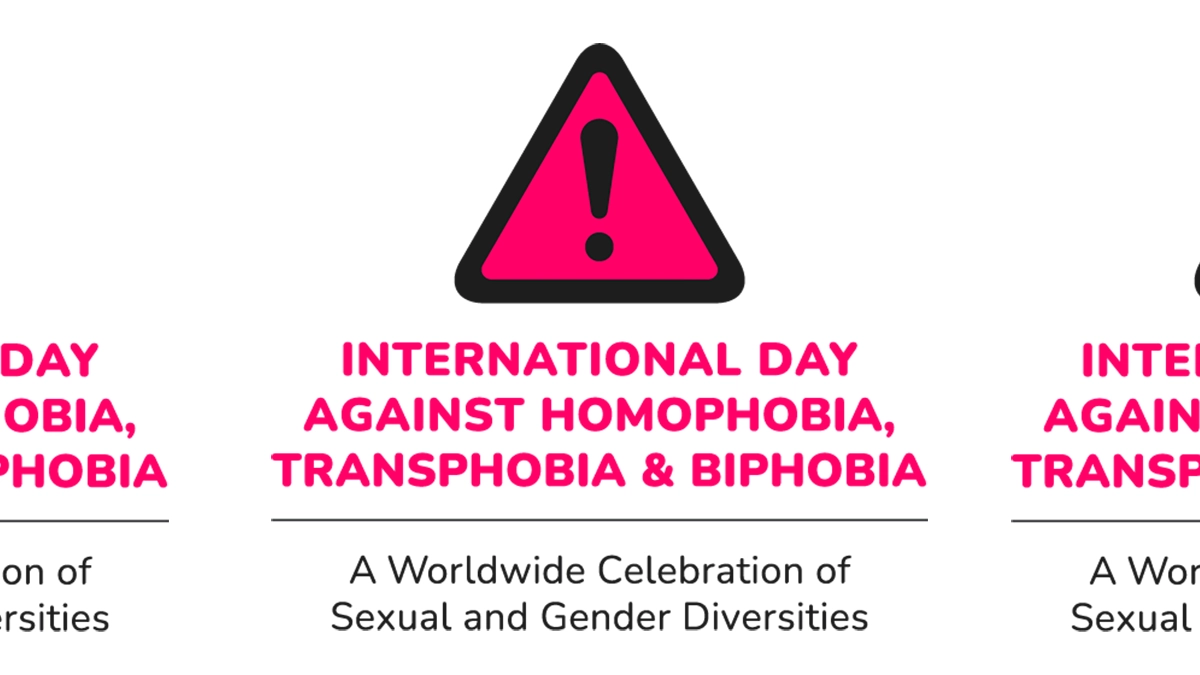
«IDAHOBIT: Championing Equality and Unity for LGBTQIA+ Rights»
Each year on 17 May, the International Day Against Homophobia, Transphobia, and Biphobia (IDAHOBIT) is observed to celebrate the progress made in advancing the rights of the LGBTQIA+ community while also highlighting the ongoing need for greater inclusion and equality.
International Day Against Homophobia, Transphobia, and Biphobia: Celebrating Progress and Unity
Each year on 17 May, the International Day Against Homophobia, Transphobia, and Biphobia (IDAHOBIT) is observed to celebrate the progress made in advancing the rights of the LGBTQIA+ community while also highlighting the ongoing need for greater inclusion and equality. This year’s theme, «No One Left Behind: Equality, Freedom, and Justice for All», serves as a powerful call for unity to create a world where every individual is valued and respected, regardless of their sexual orientation, gender identity, or expression.
Events and initiatives are taking place around the world throughout the month of May to mark IDAHOBIT, with activities registered in at least 60 countries and territories, and more being added as the day approaches. The significance of 17 May dates back to 1990 when the World Health Organisation made the historic decision to declassify homosexuality as a mental disorder, marking a pivotal moment in the global recognition of LGBTQIA+ rights.
Raising Awareness and Addressing Challenges
Since its establishment in 2004, IDAHOBIT has played a crucial role in raising awareness about the discrimination and violence faced by LGBTQIA+ individuals worldwide. Despite significant progress in some areas, data from the ILGA World Database reveals that many challenges persist in the fight for LGBTQIA+ rights.
According to the database, 62 UN member states still criminalise consensual same-sex relations, either through legislation or in practice. Additionally, at least 59 countries have imposed restrictions on freedom of expression related to sexual and gender diversity issues, reflecting the ongoing struggle for LGBTQIA+ individuals to express themselves freely and openly.
Furthermore, there has been a concerning trend of states enacting and debating provisions that limit the rights of LGBTQIA+ individuals, signaling a global pushback against democracy and human rights. Despite existing laws protecting individuals from hate crimes based on sexual orientation in 59 UN member states, the same level of protection based on gender identity, gender expression, and sex characteristics is not uniformly guaranteed.
Progress and Ongoing Efforts
Amidst these challenges, there have been notable advancements in the global movement for LGBTQIA+ rights. For instance, 16 UN member states have implemented bans on so-called «conversion therapies» at the national level, marking a significant step towards protecting LGBTQIA+ individuals from harmful and discriminatory practices.
Furthermore, 9 UN member states have introduced nationwide restrictions on unnecessary interventions for intersex youth, demonstrating a growing recognition of the rights of intersex individuals. Additionally, 17 UN member states allow for legal gender recognition based on self-determination at the national level, a vital development in upholding the rights of transgender and non-binary individuals.
Another encouraging milestone is the legalisation of marriage equality in 35 UN member states, reflecting a growing acceptance of diverse forms of partnership and commitment. These advancements signify progress towards greater equality and inclusion for LGBTQIA+ individuals on a global scale.
A Call for Solidarity and Unity
As the world commemorates IDAHOBIT under the theme of «No One Left Behind: Equality, Freedom, and Justice for All», it serves as a poignant reminder of the fundamental principles that underpin a just and inclusive society. The call for solidarity resonates deeply at a time when LGBTQIA+ individuals continue to face violence, stigma, and discrimination in various parts of the world.
Equality, freedom, and justice form the bedrock of a democratic society where every individual is valued, respected, and celebrated. The theme encapsulates the aspiration for a world where the words «all human beings are born free and equal in dignity and rights» hold true for everyone, including those with diverse sexual orientations, gender identities, and sex characteristics.
By uniting in solidarity and advocating for the rights of LGBTQIA+ individuals, we can work towards creating a world where no one is left behind, where everyone has the opportunity to live authentically and without fear of discrimination. IDAHOBIT serves as a powerful platform to reaffirm our commitment to equality and justice for all, and to continue the important work of advancing the rights and well-being of the LGBTQIA+ community.







